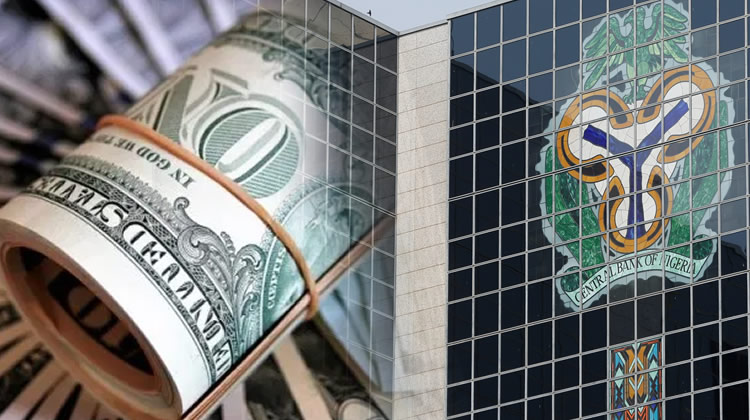The Presidency on Tuesday said the concerted efforts of the Yemi Cardoso-led Central Bank of Nigeria aimed at stabilising the naira aligns with President Bola Tinubu’s “multi-faceted approach to ridding the nation’s foreign exchange market of malign actors and sharp practices.”
It also vowed to continue its campaign against racketeers, urging Nigerians to expect a stronger naira that would reflect in a significant drop in the prices of essential commodities by the first quarter of 2025.
The Special Adviser to the President on Media and Publicity, Ajuri Ngelale, who said this, spoke against the backdrop of the recent series of measures rolled out by the central bank to halt the naira free fall and return the local currency to its fair value.
The CBN had rolled out several circulars and directives, leading to the rebound of the local currency from 1,900/dollar recorded in late February to nearly 1,200/dollar on Tuesday at the parallel market.
The naira, which had fallen against the greenback to over 1,500/dollar at the official market, also rose to about 1,230/dollar on Monday.
According to analysts, the CBN recent policies have played a pivotal role in the strengthening of the naira against the dollar.
Key reforms encompass the unification of exchange rate windows, liberalisation of the FX market, clearance of FX backlog obligations for banks and airlines, implementation of a Price Verification System, imposition of limits on banks’ Net Open Position, removal of the daily cap of N2bn on remunerable Standing Deposit Facility, and overhaul of the Bureau De Change segment.
A number of reforms in the FX market have adversely affected racketeers and currency speculators in the FX market and banking sector.
However, the Presidency on Tuesday vowed to sustain the momentum, saying regulatory agencies would go after racketeers and “malign actors” bent on frustrating the efforts of the government.
Beyond stabilising the exchange rate, the President also pledged to tackle inflation and bring it to a considerable rate.
The Special Adviser to the President on Media and Publicity, Ajuri Ngelale, told the newsmen that President Tinubu “has been very consistent in his view that the labour pains felt by our people and the incredible sacrifices made by our people over the past 10 months would be rewarded across the board.”
Therefore, “The President’s multi-faceted approach to ridding the nation’s foreign exchange market of malign actors and sharp practices have provided a platform for the sustainable strengthening of our national currency against all global currencies and this is what we are seeing,” he said.
“But there is still much work to be done and this is not a time for celebration. It is a time for doubling down and working harder to ensure that inflation is sustainably brought down in short order and that consumer protecting regulatory agencies step up enforcement to ensure that our people are not short-changed by enterprises that fail to reflect the prevailing exchange rates on the pricing of goods and services across the board,” he added.
The Presidency also expressed confidence that the expected resumption of operations by private and government-owned crude oil refineries would boost revenue for the country and better the economy.
Upon assuming office 10 months ago, Tinubu discontinued subsidies on petrol, which, he said, would save the government monies for infrastructural expansion.
He also unified the foreign exchange rates to, among other things, curb currency arbitrage.
However, these moves sparked collateral instability in the value of the naira and heaped hardship on Nigerians as food prices soared.
On the inauguration day, the President’s announcement of “subsidy is gone!” sparked a cascading scarcity in petrol even as pump prices tripled within hours.
In a statement issued on May 31 and signed by its then Chief Corporate Communications Officer, Garba Deen Muhammad, the Nigerian National Petroleum Company Limited explained that the adjusted pump price aligned with “current market realities.”
The increased pump price led to the soaring prices of essential goods and services, raising the cost of living to an all-time high.
Meanwhile, the naira appreciated to N1,200/dollar at the parallel section of the foreign exchange market on Tuesday, Bureau De change operators said.
The figure indicates an increase of N40 from the N1,240/dollar reported on April 3.
Licensed and unlicensed Bureau De Change operators at the popular Wuse Zone 4, quoted the buying rate of the local currency at between N1,100 and 1,150 while the sold at between N1,150 and 1200.
A currency trader, Malam Yahu said, “The dollar was quoted at N1,200 on Tuesday and we sold at that price because of the public holiday but we are buying at N1,100 and selling at N1,200 and I am sure that by next tomorrow, the price will drop further. Demand has really gone down and our traders have travelled, so you won’t find traders at the market now. “
The new rate followed Central Bank of Nigeria decision to review the exchange rate for the Bureau De Charge Operators to N1,101 per dollar from N1,251/$1 as it plans to sell $15.88 million to 1,588 eligible BDCs.
In a letter addressed to the President of the Association of Bureau De Change Operators of Nigeria, the CBN announced the sale of $10,000 to the BDC operators at an exchange rate of N1,101 per US dollar.
END.

